Intro
Discover how reflux surgery alleviates symptoms of acid reflux, GERD, and heartburn, improving digestion and overall health through minimally invasive procedures like fundoplication and LINX reflux management.
Gastroesophageal reflux disease, commonly referred to as GERD, is a condition where stomach acid frequently flows back into the tube connecting the mouth and stomach (esophagus). This backwash (acid reflux) can irritate the lining of the esophagus, causing discomfort. Although lifestyle changes and medications can help manage the condition, some people may require surgery to alleviate their symptoms. Reflux surgery, also known as fundoplication, is a procedure that involves wrapping the upper portion of the stomach (fundus) around the lower portion of the esophagus to prevent acid reflux.
The importance of addressing GERD cannot be overstated, as prolonged exposure to stomach acid can lead to serious complications, including esophagitis, stricture, and Barrett's esophagus. Moreover, the quality of life for individuals suffering from GERD can be significantly impacted, with symptoms such as heartburn, regurgitation, and difficulty swallowing affecting daily activities and sleep. Therefore, it is crucial to explore all available treatment options, including reflux surgery, to find the most effective solution for managing the condition.
Reflux surgery has been shown to be an effective treatment for GERD, offering several benefits for individuals who have not responded to lifestyle modifications and medication or who experience severe symptoms. The procedure can help alleviate symptoms, improve quality of life, and reduce the risk of complications associated with long-term acid reflux. Furthermore, advances in surgical techniques and technology have made the procedure safer and more accessible to a wider range of patients. As research continues to uncover the complexities of GERD and the mechanisms of reflux surgery, it is essential to stay informed about the latest developments and treatment options.
Understanding Reflux Surgery
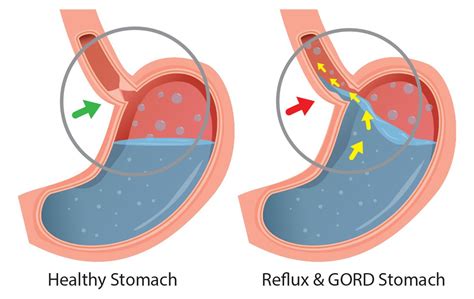
Benefits of Reflux Surgery
The benefits of reflux surgery are numerous, and the procedure has been shown to be effective in alleviating symptoms and improving quality of life for individuals with GERD. Some of the key benefits include: * Relief from symptoms: Reflux surgery can help alleviate symptoms such as heartburn, regurgitation, and difficulty swallowing, allowing individuals to enjoy a more comfortable and active lifestyle. * Reduced risk of complications: By preventing acid reflux, the procedure can reduce the risk of complications associated with long-term exposure to stomach acid, such as esophagitis and stricture. * Improved sleep: Reflux surgery can help improve sleep quality by reducing symptoms that may disrupt sleep patterns, such as nighttime heartburn and regurgitation. * Enhanced dietary freedom: Individuals who undergo reflux surgery may experience greater freedom in their dietary choices, as they are less likely to experience symptoms triggered by certain foods or drinks.How Reflux Surgery Works
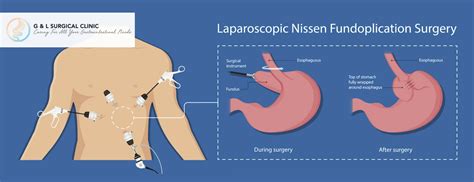
Steps Involved in Reflux Surgery
The steps involved in reflux surgery may vary depending on the individual's needs and the surgeon's approach. However, the general steps include: * Preparation: The individual is prepared for surgery by undergoing a series of tests and evaluations to determine the best course of treatment. * Anesthesia: The individual is administered general anesthesia to ensure comfort during the procedure. * Laparoscopic approach: The surgeon makes several small incisions in the abdomen and inserts a laparoscope and surgical instruments. * Wrapping the stomach: The surgeon wraps the upper portion of the stomach around the lower portion of the esophagus, creating a barrier to prevent acid reflux. * Reinforcing the wrapping: The surgeon may reinforce the wrapping with a liner or mesh to ensure a tight seal.Risks and Complications of Reflux Surgery
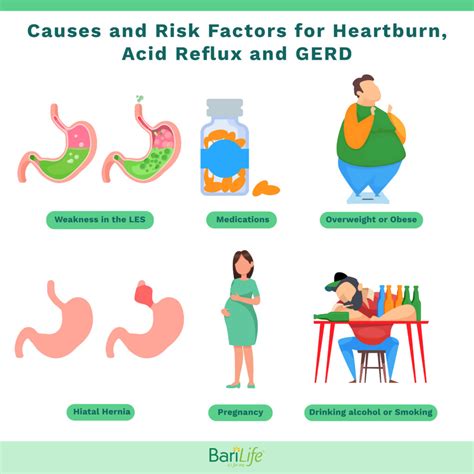
Minimizing Risks and Complications
To minimize the risks and complications associated with reflux surgery, it is essential to: * Choose an experienced and skilled surgeon * Follow pre- and post-operative instructions carefully * Attend follow-up appointments to monitor progress and address any concerns * Report any symptoms or side effects promptly to the surgeonRecovery and Follow-up After Reflux Surgery
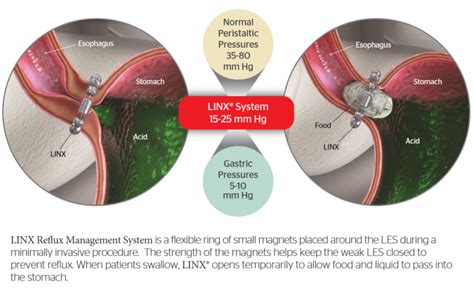
Post-Operative Care
Post-operative care after reflux surgery may include: * Dietary modifications: The individual may need to follow a special diet to avoid irritating the esophagus and stomach. * Medications: The individual may need to take medications to manage symptoms and prevent complications. * Follow-up appointments: The individual will need to attend follow-up appointments to monitor progress and address any concerns.Alternatives to Reflux Surgery
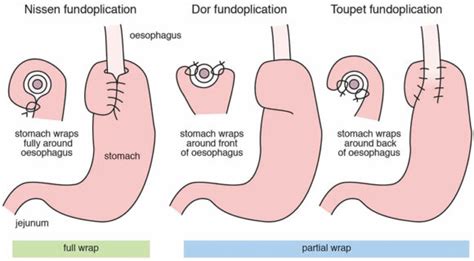
Choosing the Best Option
Choosing the best option for managing GERD depends on several factors, including the severity of symptoms, overall health, and personal preferences. It is essential to discuss the options with a healthcare provider to determine the best course of treatment.What is reflux surgery, and how does it work?
+Reflux surgery, also known as fundoplication, is a procedure that involves wrapping the upper portion of the stomach around the lower portion of the esophagus to prevent acid reflux. The procedure works by creating a barrier between the esophagus and stomach, preventing stomach acid from flowing back into the esophagus.
What are the benefits of reflux surgery?
+The benefits of reflux surgery include relief from symptoms, reduced risk of complications, improved sleep, and enhanced dietary freedom. The procedure can help alleviate symptoms such as heartburn, regurgitation, and difficulty swallowing, allowing individuals to enjoy a more comfortable and active lifestyle.
What are the risks and complications of reflux surgery?
+The risks and complications of reflux surgery include bleeding or hemorrhage, infection, adhesions or scar tissue, dysphagia or difficulty swallowing, and gas or bloating. It is essential to discuss the potential risks and complications with a surgeon to determine the best course of treatment and to minimize the risk of adverse effects.
How long does it take to recover from reflux surgery?
+The recovery process after reflux surgery typically takes several weeks, during which time the individual may experience some discomfort, bloating, or gas. It is essential to follow the surgeon's instructions carefully to ensure a smooth and successful recovery.
Are there any alternatives to reflux surgery?
+Yes, there are alternatives to reflux surgery, including lifestyle modifications, medications, and endoscopic treatments. Choosing the best option depends on several factors, including the severity of symptoms, overall health, and personal preferences. It is essential to discuss the options with a healthcare provider to determine the best course of treatment.
In conclusion, reflux surgery is a highly effective treatment for GERD, offering several benefits and advantages over other treatment options. By understanding the procedure, its benefits, and its risks, individuals can make informed decisions about their care and take the first step towards a symptom-free life. If you or someone you know is struggling with GERD, we encourage you to share this article with others, comment below with your experiences, and take the first step towards seeking medical attention. Remember, a healthier tomorrow starts today, and by working together, we can create a brighter future for everyone.
